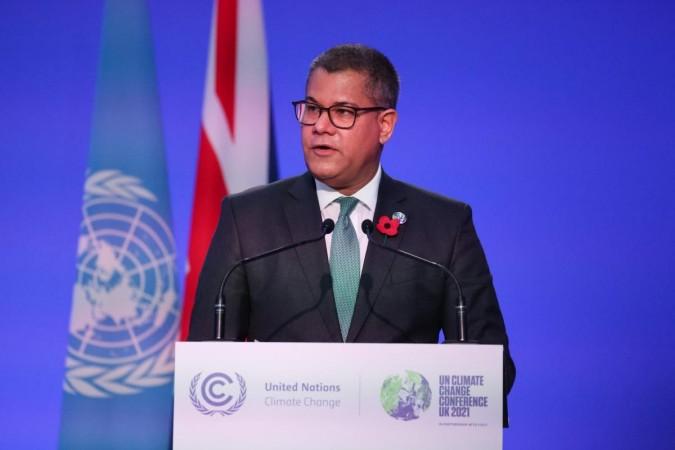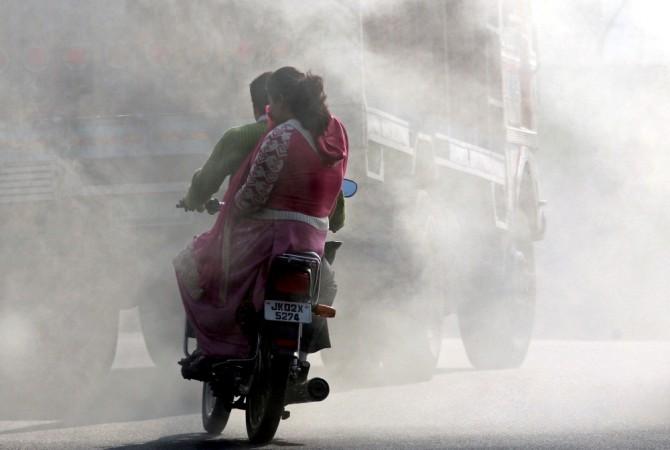The 26th United Nations Climate Change Conference, also known as the Conference Of the Parties 26, kicked off in Glasgow, Scotland, United Kingdom on Sunday. At least 195 countries are participating at the COP 26.
"If we act now, if we act together, we can protect our precious planet," said COP President Alok Sharma at the opening of the conference. But will we act now and more importantly, will we act together, remains to be seen.
Meanwhile, the summit, attended by the countries that signed the United Nations Framework Convention on Climate Change (UNFCCC), is a treaty that came into force in 1994 and is considered the next most significant event after 2015 Paris Agreement. That is wherein all the UNFCCC signatories agreed to the ambitious and still unattained target of keeping temperatures well below 2 degrees Celsius above pre industrial levels.

What's India going to do, say and push?
Before leaving for Glasgow, Environment Minister Bhupender Yadav gave more than just a glimpse of India's agenda at the conference. India will emphasize and stand for climate justice and urge developed nations to share the technology and finance necessary to negate the fallout of global warming, he apprised the national and local media. Meanwhile, PM Modi will be participating at the World Leaders Summit scheduled later this week, as a part of the COP.
In an interview, Yadav told The Hindu that the points of discussion at the conference will be, "The assistance that developing countries like India need for mitigating the carbon emissions, adapting to a warming world, and insisting on a firm transparent framework that lays out how this can be met."
Yadav further said that he would highlight the steps India has already taken towards the cause of climate. "The world has publicly acknowledged India's commitment to install 450 GW of renewable energy by 2030 as ambitious. There was also similar acknowledgement of India's electric vehicle policy, its commitment to increase forest cover as well as the national hydrogen policy."
Net zero carbon emissions not possible: India
Ahead of the conference, India rejected calls to announce a net zero carbon emissions target, despite international pressure. India's environment secretary R.P Gupta said that net zero was not a solution to the climate crisis as what also matters is how much of carbon emission a nation has already put out there before reaching net zero levels.
Net zero emissions in nutshell is the level and amount of carbon a nation puts out in to the atmosphere. It refers to reaching a balance wherein the greenhouse gas emissions produced and greenhouse gas emissions reduced from the atmosphere is equal to sum zero.

It is pertinent to note that after China and the United States, India is the third-largest emitter of greenhouse gases in the world. India being a developing nation is still largely dependent on fossil fuels like coal and oil. With already a sharp pick in energy consumption, India's demand for fuel is expected to rise further in the coming decade.
What India committed to six years back?
At the Paris Agreement in 2015, among other things, India committed to reduce emissions intensity of its GDP (the amount of greenhouse gases emitted per Indian rupee of GDP) by 33% to 35% by 2030 from 2005 level. Further, it also committed to source almost 40 per cent of its electric power from renewable and environmental friendly sources like wind and solar. Apart from pledging to cover a third of its land cover with forests by 2030.
India has always maintained that it is on its track to achieve the targets but the Climate Action Tracker consortium has termed India's progress in the matter, "as highly insufficient." Meanwhile, at the conference India will focus on urging wealthier nations to transfer technology and financial help needed to help combat the fallout of global warming. It will also push for equitable distribution of climate justice.

















